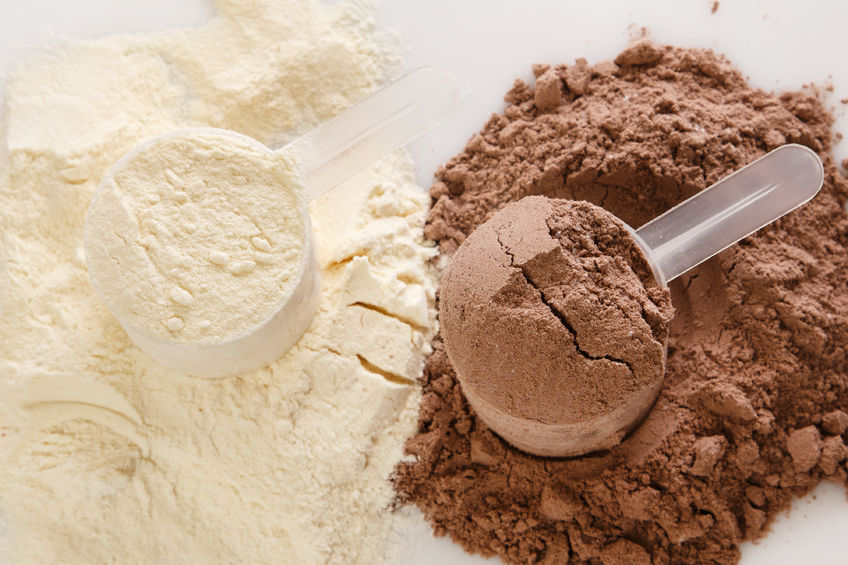
Bariatric surgery should be seen as a means to an end and not the end in itself. Diet still plays a significant role in determining the success of any bariatric surgery. Therefore, after weight loss surgery, adequate protein intake is essential for muscle building as well as for optimal body tissue functions.
While protein can also be a source of calorie and may add to daily calorie intake, it is preferred over fat or carbohydrate as it offers a lower amount of energy per gram. A gram of protein gives 4kcal of energy while carbohydrate also gives 4kcal of energy and one gram of fat gives 9kcal of energy. Since excess calorie above the body’s requirement will be converted to fat, it stands to reason that fat intake should be minimized after weight loss surgery.
Basal metabolic rate refers to the amount of energy the body consumes at rest. This is majorly determined by the muscle bulk of an individual. With bulky muscles the energy consumption during exercise is more and the weight loss is rapid.
Diet after bariatric surgery should be low in fat and carbohydrate and high in protein and vitamins. This will lead to mobilization of excess fat for the production of energy resulting in weight loss. A high protein will prevent breakdown of body tissues, accelerates wound healing and also help in muscle building. Low protein intake from low appetite or reduce protein absorption from malabsorptive surgeries may result in protein deficiency, hence, the need for protein supplements after weight loss surgery.
How to get enough protein
Different brands of protein supplements are available in the market. They also come in different formulations. The recommended protein intake per day after bariatric surgery is 60gram or more (The American Society for Bariatric and Metabolic Surgery). The amount of calorie derivable from daily protein intake should be subtracted from the total daily caloric intake. Care must also be taken to avoid protein supplements that are high in fat and refined sugar. Protein supplements that are specifically formulated for post-bariatric surgery patients are preferred. Your dietician will be of great help in choosing the best protein supplement.
Some of these supplements come in liquid form that can be taken with no additional preparation while others are in powder form and must be prepared for consumption. Examples include Designer whey protein, Isopure low carb, EAS Lean protein powder, EAS whey protein powder etc. The daily protein intake of ≥60gram should be spread across meals in smaller quantity at a time, to maximize absorption. In addition to the protein supplements, foods that are rich in protein should also be part of your routine daily diet. Examples include fish, meat, milk, groundnut, beans, etc.
- Check the protein content of the supplement to be sure you are not taking below the recommended quantity.
- When preparing your supplement by yourself do not add refined sugars or other substances that will significantly increase the calories. Be careful of whole milk and fruit juice.
- Refined sugar will aggravate dumping syndrome especially if you’ve had gastric bypass surgery. Dumping syndrome will further prevent adequate protein absorption.
- Substances like ginger, cinnamon, almond, peppermint may be added to your protein mix.
Some examples of the liquid protein supplements include; premier protein, muscle milk light, and GNC total lean. Go for those with less sugar (<15grams), low calorie (not higher than 250 calorie). Choose a supplement with whey protein.
Many protein supplements are available in the pharmacies and groceries. Choosing the best may be a bit confusing. Discuss with your doctor/dietician and use the one prescribed for you. Any other protein supplement you discover should be discussed with your dietician before consumption.
The importance of adequate protein intake after bariatric surgery lies in the fact that it prevents tissue breakdown and essential for muscle building. The latter is central to weight loss as energy consumption during exercise is directly proportional to the muscle bulk. Getting adequate information from your dietician will assist you in choosing the best protein supplement and monitoring your daily intake to ensure adequacy.
Read this Next
Risks of Bariatric Surgery
What are the Risks of Bariatric Surgery? – How to Reduce the Risks of Bariatric Surgery Understanding the risks...
How to Prepare for Safe Weight Loss Surgery
In any scheduled an elective procedure, it is always recommended that you familiarize yourself with the aspects you as...
Bariatric Surgery Statistics, Facts
Weight loss surgery is a proven option for obese and morbidly obese individuals to help improve their health...
Bariatric Surgery Diet Guide
The development of obesity is the result of interaction between genetic make-up of an individual and dietary habit. While...







